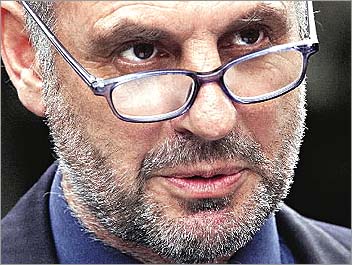Philip Nitschke has been accused of moving into uncharted territory.
Personally I think he has crossed a line. He helped Nigel Brayley, a troubled 45 year old who said he intended committing suicide Brayley implemented his plan by taking the euthanasia drug of choice, Nembutal, which he imported illegally. Brayley had an exchange of emails with Nitschke.
Exactly what Nitschke advised him is not clear, but he made no effort to suggest Brayley seek help for his suicide plans. Nitschke takes the view that Brayley had made a rational decision and to interfere would be curtailing his freedom. Nitschke saw his role as supporting Brayley in his decision.
if a 45-year-old comes to a rational decision to end his life, researches it in the way he does meticulously, and decides that now is the time of life, now is the time I wish to end my life, they should be supported, and we did support him in that.
This is wrong-headed on several counts. First, no decision is entirely rational. We never escape emotions and values.
Secondly, ‘rational’ is not always good. One could rationally come to the conclusion that humans are vermin in the planetary ecosystem and should be destroyed on sight.
It seems to me that being pro-life is a fundamental value position if we are to live as social beings. There are limits, though. I can’t, for example, wish the Ebola virus God’s speed in going about its business.
But assisting people in the dying process at the end of their natural lives is essentially pro-life. That’s my view.
My impression also is that Nitschke has become obsessive about helping people die and has lost his ethical bearings.


This case highlights some of the problems that arise when you don’t have a legal euthanasia system with appropriate checks and balances. Under such a system there should be checks that help people check how rational their desire to end their life is and, where appropriate, insist on at least a delay to see if things don’t get better.
In a legal system someone like Nitschke may be the person who ends a life or provides technical advice. But you wouldn’t want him to be the person to help someone decide whether dying now really is the right decision. Nitschke comes across as being a bit too entranced with the ending of life for my liking.
I think under most legal systems people seeking assistance to die have to be assessed by two independent specialists, qualified to make mental assessments.
The ABC had this take on the issue The report said:
This reinforces concerns about Nitschke As spokesperson for the euthanasia campaign. The campaign should be concentrating on helping people who clearly have a rational reason for ending their life while no longer being able to end their life without assistance.
John, last I heard the Black Dog Institute were considering making a formal complaint about Nitschke.